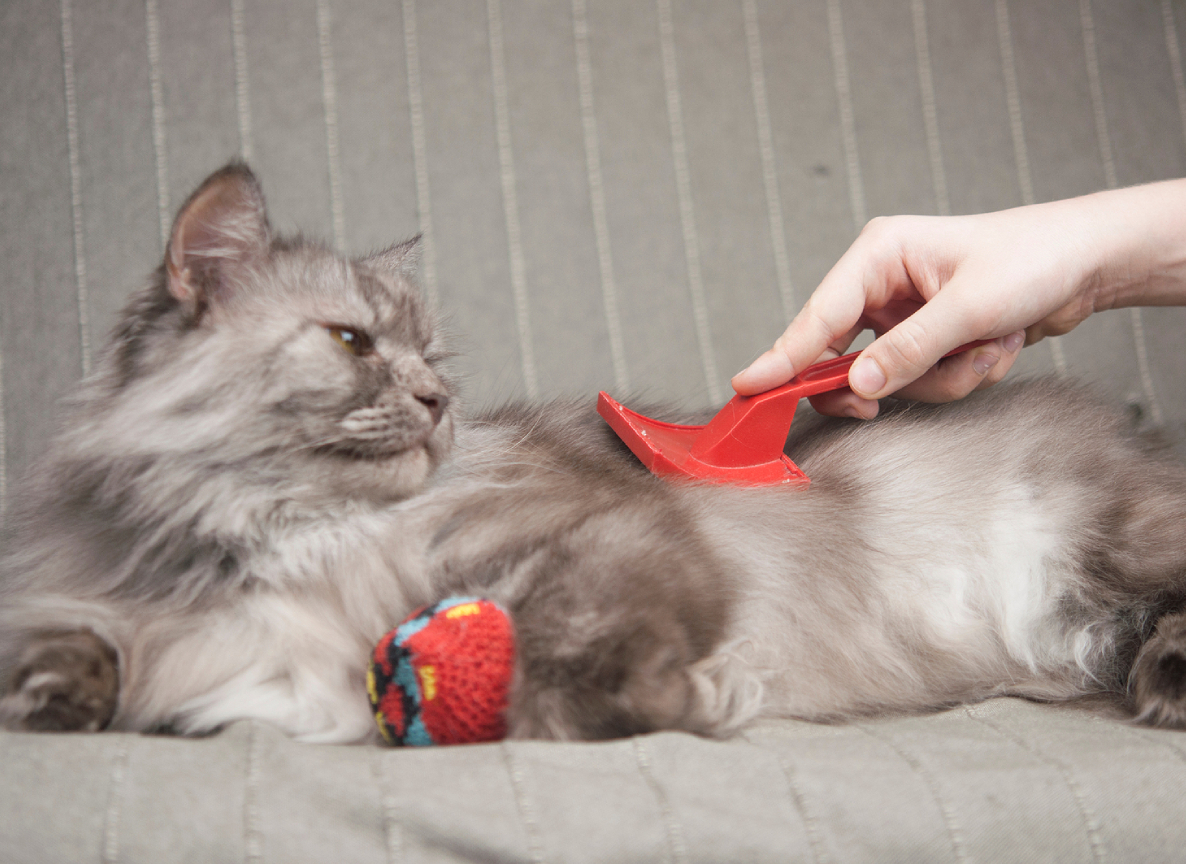
Hairballs can be a common and frustrating problem for cat owners. While it is natural for cats to groom themselves by licking their fur, the ingestion of loose hair can sometimes lead to the formation of hairballs in the stomach. These hairballs can cause discomfort and even blockages in the digestive system, leading to serious health issues if left untreated.
Fortunately, there are several methods you can use to help your cat pass hairballs and prevent them from occurring in the first place. Here are some of the most effective ways:
1. Brush your cat regularly
Brushing your cat’s fur on a regular basis can help remove excess shedding and loose fur from your cat’s coat. This is especially important for long-haired cats, as they are more prone to developing hairballs. Look for a slicker brush or a comb with fine teeth to effectively remove tangles and loose hair. By doing so, it can prevent your cat from swallowing large amounts of fur while grooming themselves, which can lead to the formation of hairballs. Additionally, regular brushing can help to stimulate your cat’s natural grooming habits and encourage them to groom themselves more frequently, further reducing the likelihood of hairballs forming.
2. Provide plenty of water
By providing your cat with access to fresh, clean water, you can help to prevent hairballs and other digestive issues. Drinking water can soften and break down hairballs in the stomach, increase the volume of digestive fluids, and flush out any ingested hair. It can also help to prevent constipation and dry, itchy skin, which can lead to increased grooming and more hairballs. Dehydration can make it more difficult for your cat to pass hairballs and can lead to urinary tract issues. Ensuring that your cat stays hydrated can help to keep its digestive system moving smoothly and prevent hairballs from forming.
3. Consider changing your cat’s diet
If your cat is prone to hairballs, it may be worth switching to a diet that is formulated specifically for hairball control. These diets often contain ingredients that help to reduce the amount of hair that is ingested and promote healthy digestion. Adding fibre to your cat’s diet can also help move hairballs through the digestive system more easily. Look for cat food that is high in fibre or consider adding a small amount of pumpkin or other high-fibre foods to your cat’s meals. But do also take extra care if you want to feed your cat with human food, as some may be unsafe for your kitties.
4. Consult with your veterinarian
If your cat is experiencing frequent or severe hairballs, it is important to consult with your veterinarian. While occasional hairballs are normal for cats, frequent or severe hairballs can be a sign of underlying health issues. Your veterinarian can help to identify the underlying cause and recommend the best course of treatment, which may include medication or other therapies.
Conclusion
By following these methods, you can help your cat pass hairballs more easily and prevent them from occurring in the first place. Regular grooming, a healthy diet, and plenty of water can help keep your cat’s digestive system functioning smoothly and reduce the risk of hairballs. If you are concerned about your cat’s hairball problem, be sure to consult with your veterinarian for personalised recommendations and treatment options. At aPetMart, we offer a wide range of online pet supplies, including hairball control supplements, nutritious high-fibre cat treats and many more. Browse our website today for quality pet supplies!
Valerie is a pet lover, she loves all animals, whether they are big or small, furry, feathery, or even scaly, and she is passionate about translating that into words. As an avid caretaker of a variety of animals herself, she aims to provide invaluable tips and tricks that will help people give their pets the care they deserve.






























